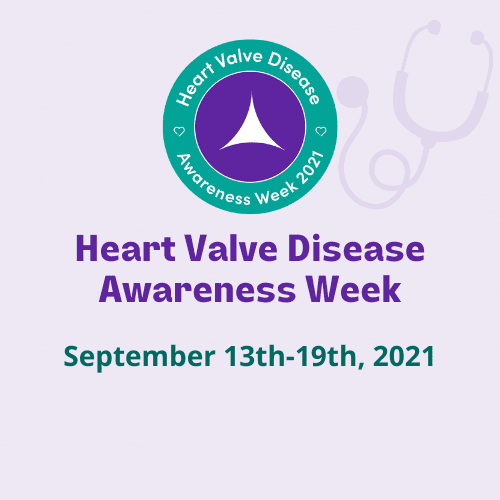[vc_row][vc_column][vc_single_image image=”14874″ img_size=”full”][vc_column_text]
“It’s been described as the next cardiac epidemic…”
[/vc_column_text][vc_column_text]
With One in Eight Over 75 Years Suffering from Heart Valve Disease, People Urged to Have an Annual Stethoscope Check
[/vc_column_text][vc_column_text]
See croi.ie/valveweek for information on heart valve disease and to register for the upcoming webinar.
[/vc_column_text][/vc_column][/vc_row][vc_row][vc_column][vc_column_text]Croí, the Irish heart and stroke charity, is calling on all adults over the age of 65 years to ask their doctor for an annual stethoscope check to ensure early detection and timely treatment of heart valve disease.
Heart valve disease – where valves in the heart are damaged or not working properly – is common, serious, but treatable. Regular checks for a heart murmur using a stethoscope are a vital tool in diagnosing the disease.
The call comes ahead of International Heart Valve Disease Awareness Week (September 13-19), an initiative of the Global Heart Hub, an international alliance of heart patient organisations from around the world, and which is led in Ireland by Croí.
Statistics show that one in eight people (13 per cent) over the age of 75 are thought to suffer from moderate to severe heart valve disease which can lead to premature death if left untreated.
Marking the week, Croí is to host a webinar on heart valve disease for members of the public on Thursday, September 16 from 7-8pm.
The “Listen to Your Heart” webinar will feature contributions from interventional cardiologist, Dr Samer Arnous, and a person living with heart valve disease. The webinar will highlight the signs and symptoms of heart valve disease and how it is detected and treated. Members of the public will have the opportunity to put their questions to Dr Arnous. People interested in registering for the webinar can do so at www.croi.ie/valveweek.[/vc_column_text][vc_separator][vc_column_text]
Needs to Change
For Neil Johnson, CEO of Croí, an annual stethoscope check needs to become a matter of routine for everyone over 65 years:
“As more and more of us live longer, heart valve disease is increasingly an issue that we may need to face. Indeed, it’s been described as the next cardiac epidemic. Sometimes we may put down to old age not being able to do certain things as well as we used to. However, the symptoms of heart valve disease can be masked by the natural signs of ageing. Too often, it goes unnoticed and undiagnosed as we don’t realise that there may be something more troubling going on.
“As we age, especially from 65 years onwards, if you are finding that small everyday tasks like going up the stairs, mowing the grass, or catching a bus, are leaving you feeling breathless or dizzy, you may need to get checked out by your GP. Indeed, as symptoms are not always present, as a matter of good heart health routine, I would encourage anyone over 65 years to have an annual stethoscope check. Unfortunately, we know from research that most people over 65 years in Ireland are not having regular stethoscope checks when they attend their GP. That needs to change. When it comes to heart valve disease, early detection and timely treatment is vital not only in living a longer life, but a life which you can enjoy to the full.”[/vc_column_text][vc_separator][vc_column_text css=”.vc_custom_1630575457340{padding-top: 20px !important;padding-right: 20px !important;padding-bottom: 20px !important;padding-left: 20px !important;background-color: #cfbae2 !important;}”]
Heart Valve Disease – Your Questions Answered
- What is heart valve disease? There are four valves in the heart – the pulmonary valve, the tricuspid valve, the mitral valve and the aortic valve – and these valves regulate blood flow. Heart valve disease occurs when these valves become damaged, narrowed or stiffened, effecting blood flow in the heart.
- How serious is it? Heart valve disease can cause heart rhythm problems, heart failure, blood clots, stroke and even death. Up to half of symptomatic patients with severe aortic stenosis – where the aortic valve is damaged or stiffened – die within two years of developing symptoms if not treated.1, 2
- What causes it? There are different reasons as to why heart valve disease might arise. Some people are born with a heart abnormality or it may be due to ageing. It can be the result of a previous infection, such as rheumatic fever or endocarditis. It can also arise due to coronary heart disease or a heart attack, or due to cardiomyopathy, a disease of the heart muscle.
- How common is it? 13% of people over the age of 75 are thought to be living with heart valve disease3, and, based on studies in other populations, that number is estimated to double by 2040 and triple by 20604 due to the ageing population.
- What are the symptoms? Symptoms can include chest tightness or pain, shortness of breath, irregular heartbeats, dizziness, fainting, swelling of the ankles and feet, fatigue and reduced physical activity. However, some people with heart valve disease will experience no symptoms for many years.
- How do you check for it? Everyone over the age of 65 years should have their heart listened to with a stethoscope at least once a year. Anyone with suspected heart valve disease should be referred for an echocardiogram to confirm the diagnosis.
- How is it treated? Lifestyle changes and medicines are often prescribed to treat symptoms. However, people may need to have a heart procedure to repair or replace the valve.
[/vc_column_text][vc_column_text]For more information on International Heart Valve Disease Awareness Week, visit www.croi.ie/valveweek. To keep up-to-date on developments for Heart Valve Disease Awareness Week in Ireland, follow Croí on Facebook, Twitter and Instagram @croiheartstroke, or search for the hashtags #ListenToYourHeart #ValveWeek21.[/vc_column_text][/vc_column][/vc_row]
